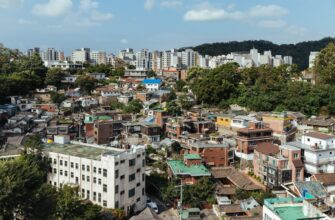- Understanding Bitcoin and Algeria’s Legal Landscape
- Step-by-Step: How to Buy Bitcoin in Algeria
- Top Bitcoin Wallets for Algerian Users
- Key Risks and How to Mitigate Them
- FAQ: Buying Bitcoin in Algeria
- Is Bitcoin legal in Algeria?
- Can I buy Bitcoin with Algerian Dinar (DZD)?
- Are there Bitcoin ATMs in Algeria?
- What fees will I pay?
- How do I sell Bitcoin in Algeria?
- Can I mine Bitcoin in Algeria?
- Final Considerations
Understanding Bitcoin and Algeria’s Legal Landscape
Bitcoin has revolutionized global finance, but buying it in Algeria comes with unique challenges. Since 2018, the Bank of Algeria has banned cryptocurrency transactions under Financial Law 18-07, prohibiting financial institutions from handling crypto. While individuals aren’t explicitly criminalized, all transactions exist in a legal gray area. This guide explains practical methods while emphasizing caution: Consult legal experts before proceeding, as regulations may evolve.
Step-by-Step: How to Buy Bitcoin in Algeria
Given the ban, peer-to-peer (P2P) platforms are the primary method. Follow these steps carefully:
- Choose a P2P Exchange: Use global platforms like Binance P2P, LocalBitcoins, or Paxful. Access via VPN if blocked.
- Create & Verify Account: Sign up with email/phone. Complete KYC verification (ID required).
- Find Algerian Sellers: Filter sellers accepting Algerian Dinar (DZD). Check trader ratings and transaction history.
- Select Payment Method: Common options include:
- Bank transfers (Attijari, BNA)
- Cash deposits
- Mobile money (Djezzy, Ooredoo)
- Gift cards (Steam, Amazon)
- Initiate Trade: Agree on amount/price. Use platform escrow—funds release only after payment confirmation.
- Transfer to Private Wallet: Immediately move Bitcoin to a non-custodial wallet (e.g., Trust Wallet, Exodus) for security.
Top Bitcoin Wallets for Algerian Users
Never store Bitcoin on exchanges. Recommended wallets:
- Hardware Wallets (Most Secure): Ledger Nano X, Trezor
- Mobile Wallets: Trust Wallet (user-friendly), Exodus (multi-currency)
- Desktop Wallets: Electrum (advanced features)
Security Tip: Enable 2FA and write down recovery phrases offline.
Key Risks and How to Mitigate Them
Navigating Algeria’s crypto restrictions involves significant risks:
- Legal Uncertainty: Transactions may violate banking laws. Penalties could include fines.
- P2P Scams: Fake sellers or payment reversals. Solution: Trade only with high-reputation users and use escrow.
- Market Volatility: Bitcoin prices fluctuate wildly. Invest only disposable income.
- Technical Errors: Sending to wrong addresses is irreversible. Triple-check wallet IDs.
FAQ: Buying Bitcoin in Algeria
Is Bitcoin legal in Algeria?
No. The Bank of Algeria banned cryptocurrency transactions in 2018. Individuals trade at their own risk.
Can I buy Bitcoin with Algerian Dinar (DZD)?
Yes. P2P platforms connect you with sellers accepting DZD via bank transfer, cash, or mobile money.
Are there Bitcoin ATMs in Algeria?
None exist due to the ban. P2P is the only practical method.
What fees will I pay?
Expect:
- P2P platform fees (0.1%-1%)
- Bank/mobile transfer charges
- Blockchain network fees
How do I sell Bitcoin in Algeria?
Reverse the buying process on P2P platforms: list BTC for DZD and follow escrow steps.
Can I mine Bitcoin in Algeria?
Technically yes, but impractical due to high electricity costs (~5.63 DZD/kWh) and the legal ban.
Final Considerations
Buying Bitcoin in Algeria requires navigating legal restrictions and security risks. While P2P platforms offer access, prioritize safety: verify sellers, use escrow, and store BTC in private wallets. Monitor regulatory updates from the Bank of Algeria, and never invest more than you can afford to lose. Cryptocurrency remains high-risk, especially in restrictive jurisdictions—educate yourself thoroughly before proceeding.








